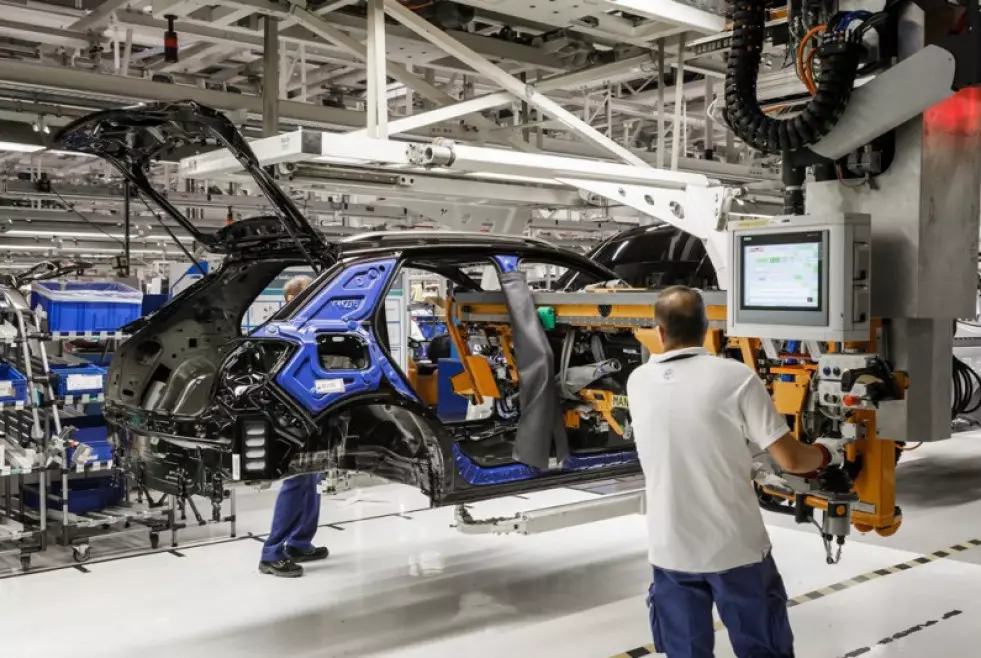By 2030 the car industry will have to reduce CO2 emissions from passenger cars by 37.5%. A very demanding value, which starts from a base that is already putting car brands on the «red alert»: 95 g/km.
Despite warnings from the sector, it is possible that the scenario will become even more complicated when the new Euro 7 emission standards are announced at the end of this year. This year is therefore a year of big decisions: the sector has to react to the pandemic, recover and even project for the future.
It will not be easy. I recall that in 2018, when the new emission targets were established, MEPs expressed their desire to go "even further", proposing a 40% reduction in emissions as an "ideal scenario". The industry asked for 30%, the legislator wanted 40%, we stayed with 37.5%.
I even go further. The ideal scenario would be to reduce emissions to 100%. Would be excellent. However, as we well know, it is impossible. The original sin is precisely this: the failure of the European legislator to face reality. In the name of the environmental cause — which belongs to everyone and EVERYONE must mobilize — goals and objectives are revised at a speed impossible to follow by the automobile industry and by society. I reinforce the word society.
In Europe alone, the automotive sector is responsible for 15 million jobs, €440 billion in tax revenue and 7% of the EU's GDP.
Despite everything, these numbers do not fully reveal the importance of the automobile industry. It is important not to forget the multiplier effect that the automobile industry has on the economy — metallurgy, textiles, components and other manufacturing industries.
Subscribe to our newsletter
We can do an exercise: imagine the Setúbal region (and the country) without Autoeuropa. The older ones will remember the depression that the Setúbal region was subjected to after the closing of its main industries in the 1980s. , not infrequently, at least debatable.

In view of this, one would expect some consideration in all decision-making, but that is not what has happened. Starting with local authorities, passed by national governments and ending with European decision makers.
What has been asked of the automobile industry — in emissions targets, calculation formulas and fiscal updates — is, for lack of another word: violence.
Those whose academic background is engineering-based — unlike me, who went to 'school' for the humanities — know that when you achieve an efficiency gain — whether in a machine or a procedure — of 2% or 3%, it's a reason to open a bottle of champagne, join the team and celebrate the feat.
As much as we try to avoid it, our expectations — however legitimate they may be — always meet reality. In this regard, the European legislator has been incompetent in managing expectations.
It is forgivable that environmental associations such as “Transport & Environment”, led by Greg Archer, and their counterparts claim that “progress is not fast enough to reach our environmental goals”. Faced with findings like this, one would expect a revision of the goals, but that is not what happens, the goals are aggravated. The shock to reality will be tremendous.
They lack the weight of responsibility of those who have the welfare of society in their hands — or, if you prefer, the economy, whose etymological meaning is “the art of managing the home”, our planet. That is why it is not forgivable that the legislator does not feel this burden. How he didn't feel in October 2020, when hybrid incentives ended. We are burning steps.
Does it make sense to stop supporting vehicles with hybrid technologies, accessible to the wallet of the majority of the Portuguese, which allow traveling in the city more than 60% of the time in electric mode?
This is just one example of how environmental fundamentalism hurts. One more example: the campaign carried out against Diesel engines led to an average increase in CO2 emissions in the EU. Greater scrutiny and care in decision making is required. The environment is “broad-backed”, but society is not.
Therefore, as you can see from my words, it is not the need for change in the automotive sector that I question. But rather the speed and effects we want in this change. Because when we deal with the car industry, we deal with one of the main pillars of the European economy. We affect the well-being of millions of families and with one of the great achievements of the last 100 years: the democratization of mobility.
In Portugal, if we want to start worrying seriously about air quality and CO2 emissions, we can look to the present. What can we do now? We have a car park with an average age of over 13 years. More than five million cars in Portugal are over 10 years old, and almost a million are over 20 years old.
Encouraging the scrapping of these vehicles is, without any doubt, the most effective response we can give in combating emissions.
Over these more than 120 years, the automotive industry has shown an extraordinary capacity for change, responsibility and adaptability. A legacy that we will continue to remember to the most pessimistic. It is lacking, and the car industry deserves to be recognized not only for its mistakes, but also for its merit. Moreover, all of society, without exception, aspires to move towards decarbonization.
In the case of the automobile industry, we are proud to witness and announce this change, which, without fundamentalism and without leaving anyone behind, will lead us to the mobility of the future: more democratic, with less environmental impact and with new solutions.
